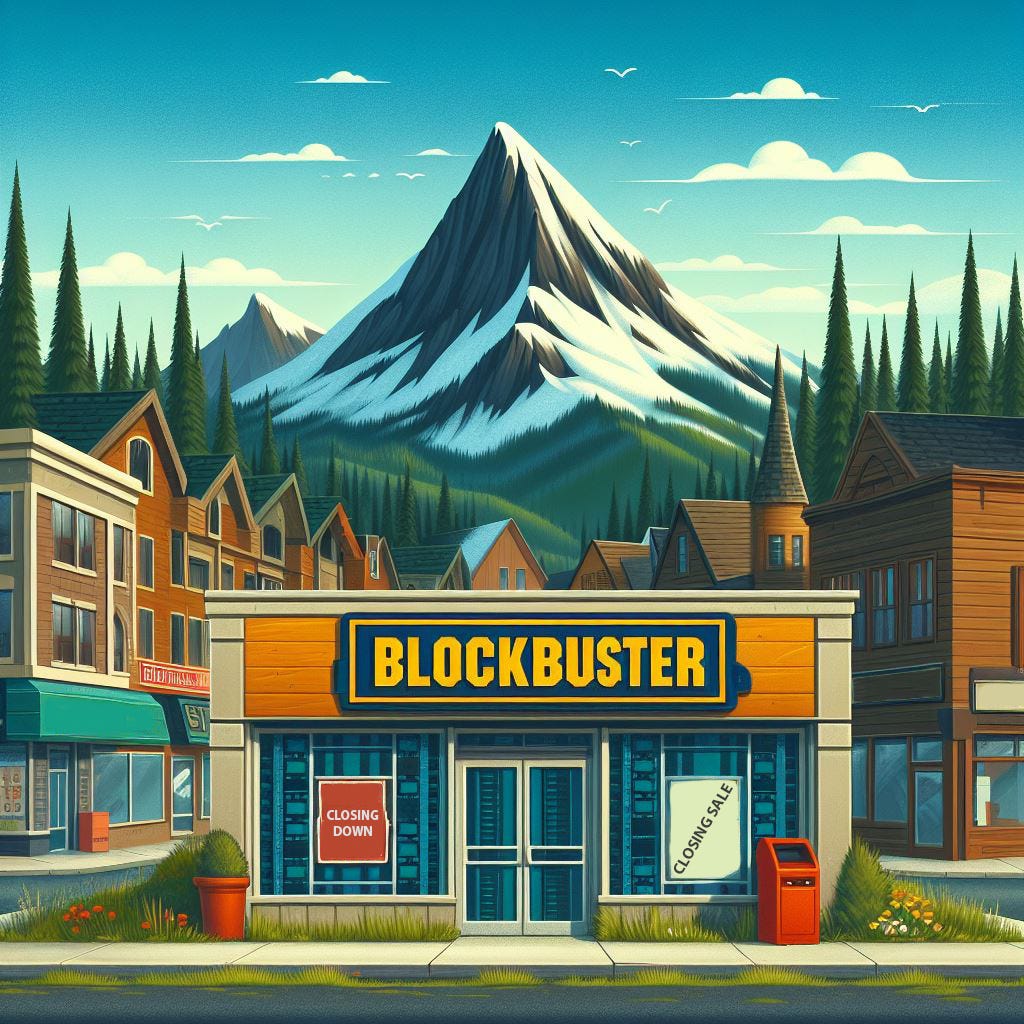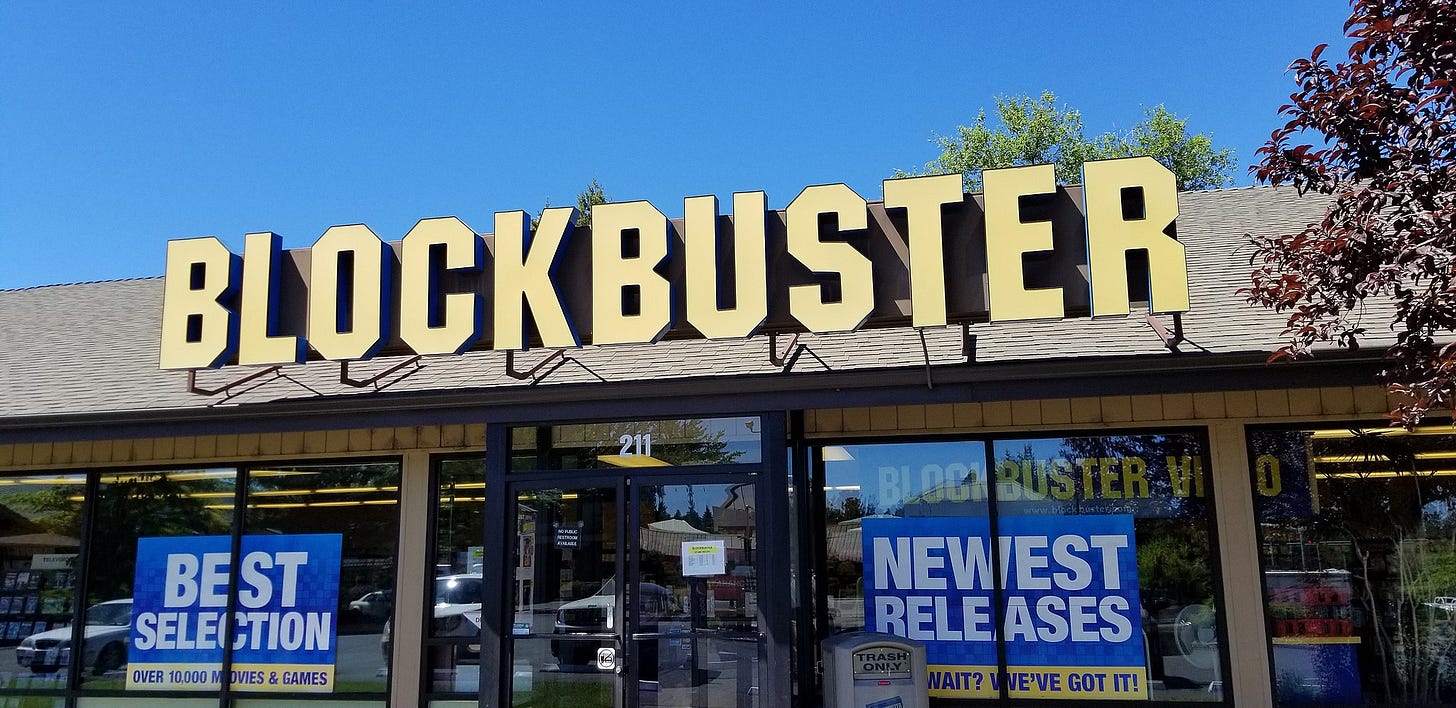💀 The Blockbuster bust: lights, camera, collapse in a streaming world 📼
Failure to pivot to new business models proved fatal - while the opportunity to save itself and buy competitor Netflix for just $50 million was passed up
Blockbuster revolutionised movie rentals in the late 20th century only to crumble against digital upstarts like Netflix. The key ingredients behind its boom, bust, and ultimate demise? Complacency towards competition and their new models, and failure to pivot even when customers were leaving in droves.
Blockbuster’s story shows how even category leaders can get left behind by disruption.
Seeds of a rental empire: Blockbuster’s origin story
Founded in 1985, Blockbuster became synonymous with movie nights by making rentals cheap, easy, and accessible. Its nationwide network of retail locations put a video store on every corner.
Blockbuster dominated the rental industry for decades by offering a massive selection and popular new releases before competitors. It fended off rivals like Hollywood Video to cement its iconic status.
At its peak in the early 2000s, Blockbuster boasted over 9,000 stores worldwide and 80,000 employees, with millions renting movies there every week. Revenues peaked at $6 billion before its fall. By 2010, Blockbuster filed for bankruptcy, closing all corporate stores.
So what were the major factors behind its ruin and what can we learn?
Failure to pivot to the digital age
For decades, Blockbuster sat on a cash cow of a business model and its greatest mistake was failing to look at future models which might disrupt their money printer. While customers moved onto the convenience of rentals by mail and later streaming, Blockbuster doubled down on brick-and-mortar retail.
Complacency breeds disruption
Meanwhile, competitors like Netflix leapt into new models that transformed the customer experience: watch as much as you want over the internet, all from the comfort of your sofa and delivered digitally! With this superior experience, plus better choice, and price, they quickly cannibalised Blockbuster’s market.
In another head-in-hands misstep, Netflix even offered Blockbuster the chance to buy Netflix for $50 million in 2000, only to be laughed off - an investment that would have been worth over $200 billion today. How different we would look at Blockbuster’s history today if they had made the purchase: we’d see them as innovative strategists, willing to pivot to new models and probably remaining dominant in their market, rather than a byword for complacency.
Blockbuster late fees: putting profit over customer experience
A pivotal part of the Blockbuster business model also proved a major pain point for customers - late fees. These pesky fees often blindsided busy customers and marred positive brand perceptions, especially when the late fee was larger than the rental itself.
Blockbuster long resisted calls to eliminate these fines as they were such revenue-earners, driving some customers straight into the arms of Netflix's no late fee DVD-by-mail model.
Blockbuster finally eliminated late fees in 2004 to lure customers back. But the damage was done - the fees had created a lingering brand perception that Blockbuster gouged customers.
Gone, but not forgotten
Blockbuster will also be remembered for leaving a lasting impact on popular culture. The brand name endures as shorthand for movie nights, even if the blue-and-gold stores live on only in memories.
TLDR
Blockbuster’s fall shows even the mightiest category leader can topple against lean digital disruptors. Its complacency gave competitors like Netflix room to take the reinvent home video experience, delivering it in a completely new model (watch as much as you want, without fines) via entirely new channels (DVDs by post, then digital streaming).
Further reading/watching/listening
A single remaining Blockbuster store still exists today and has become a tourist attraction in its own right, read about it here
Ironically, on Netflix of all places, Blockbuster, the TV series is available for streaming, dramatising this final store, but I won’t be recommending it due to very poor ratings!





